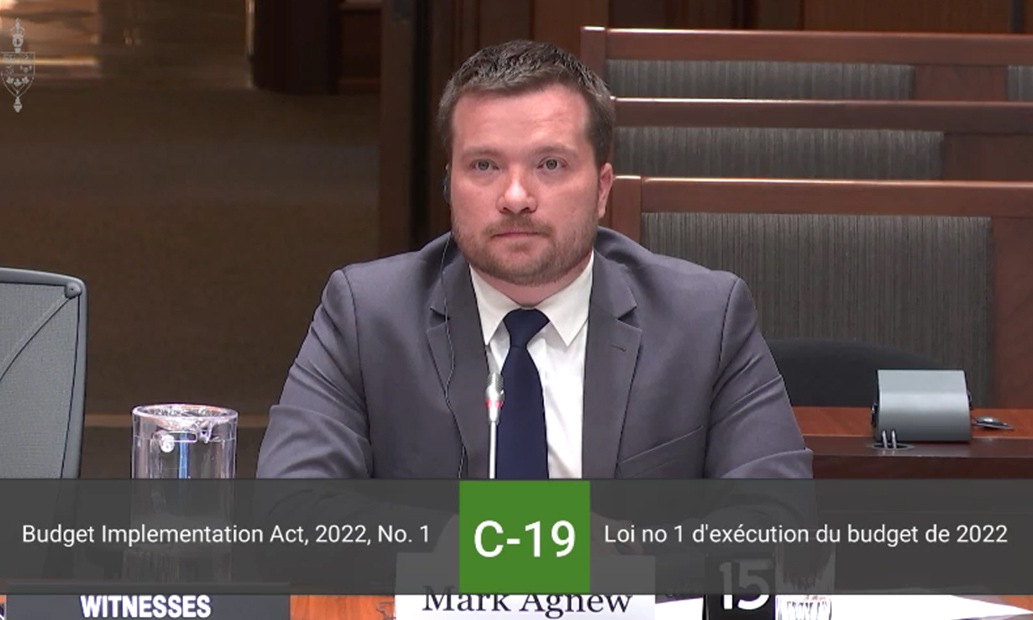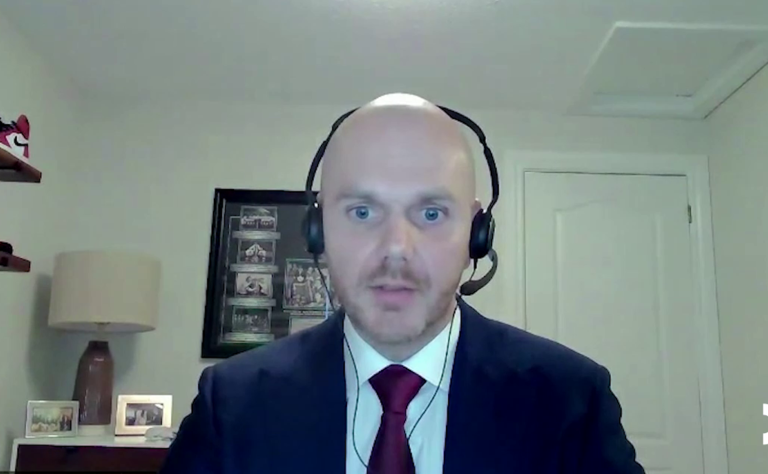Blog /
Canadian Chamber urges Finance Committee to get competition policy right the first time
Canadian Chamber urges Finance Committee to get competition policy right the first time
On May 25, 2022, Mark Agnew, Canadian Chamber of Commerce Senior Vice President, Policy and Government Relations, appeared at the...

On May 25, 2022, Mark Agnew, Canadian Chamber of Commerce Senior Vice President, Policy and Government Relations, appeared at the House Standing Committee on Finance to speak to Bill C-19, the Budget Implementation Act (BIA). Agnew focused his remarks on competition policy as well as the government’s proposed luxury tax on aircraft.
Agnew encouraged the government to remove three sections related to competition policy from the BIA, to allow proper Competition Act studies to take place prior to implementing changes. Agnew recommended that making changes now, and then figuring it out later during a review, would be a mistake and risk Canada’s competitiveness. Agnew also raised concerns for Canada’s aviation manufacturers over the impact of the proposed aircraft luxury tax.
Mark Agnew’s opening remarks:
Check against delivery
Chair and honourable members, it is a pleasure to be here today to discuss Bill C-19. The honourable members will have seen the separate submission the Chamber made to the Clerk, so I will focus my remarks on the competition policy provisions and the luxury goods tax.
I will start on competition policy. Given the evolving nature of the economy, our competition policies need to keep pace. However, getting it right is critical. This means robust consultations with stakeholders, including the business community, but others from the legal, civil society, and consumer perspectives, among others.
The Chamber is particularly concerned with three elements and is urging this committee – and the government – to remove these from the C-19 and place them into the mandate of the fuller Competition Act review that Minister Champagne has committed to undertake.
First is the abuse of dominance provisions and the codifying of a number of definitions. An overly broad approach to defining what is anti-competitive is particularly problematic because every act of competition may, at least in the eyes of a competitor, “impede” their progress or expansion. Indeed, an action seeking to outdo a competitor is at the very heart of healthy and necessary competition. Clarity is also needed on areas like privacy given we have a separate privacy regulator federally. While some have argued these proposals codify existing practice, we should not be haphazard given legislation cannot be changed on a whim.
Second are the changes to penalties. The proposed changes to AMPs represent a significant over-correction. Such significant penalties of up to 3% of worldwide revenues are problematic when the provisions are being expanded and companies are left without the benefit of existing jurisprudence. The penalties additionally scope-in company activities that are not linked to violations occurring in Canada.
Third are the provisions relating to no-poach. As others have pointed out in separate forums, this poses challenges in the franchise context where companies have provisions written into contracts as a means to ensure investments in training are not being undermined. There are also interactions with provincial labour laws.
I don’t have specific amendments to offer today, which reflects the time needed for the Chamber to consult our members that sit across different sectors. A few hours of meetings at committee on legislation doesn’t suffice for consultations and we hope the government will make these part of the phase two review instead of including them in the BIA.
Despite the assertions made by some that we should make the changes now and figure it out later through administrative guidance or reopening it in the phase two review, I think that would be a mistake. We don’t know what will happen from that review given it hasn’t yet begun. Additionally, there may be a tendency to view these Competition Act changes in the context of the current inflationary environment. These changes will not address current inflationary pressures, so we should not take a kneejerk reaction with that goal in mind.
I want to briefly shift now to the proposed luxury goods tax.
Members will be aware from other witnesses that have appeared about what the luxury goods tax means for the Canadian aircraft manufacturing industry. The industry is still in recovery mode from the pandemic and concerns persist about what this tax means for the industry.
There a number of specific areas where we hope to see amendments, including exemptions for exports and liabilities when it comes to usage by the buyer after the sale has occurred. We also need to understand how the tax will impact our competitiveness relative to other jurisdictions. The US introduced such a tax, only to repeal it shortly thereafter.
Thank you for taking the time to consider my views and I would be happy to answer your questions.
Related News

Time to put reports into action, Chamber tells House Agriculture Committee

2022 Q3 Canadian Survey on Business Conditions: Inflation is the top issue. Labour pains intensifying, but price pressures and supply chains issues are improving




